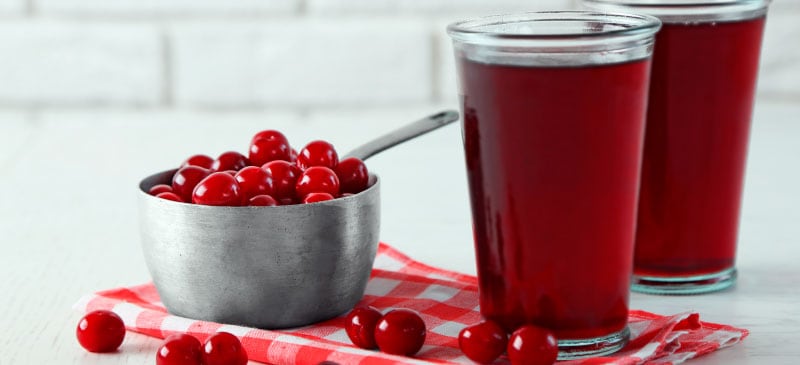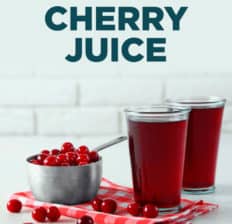This Dr. Axe content is medically reviewed or fact checked to ensure factually accurate information.
With strict editorial sourcing guidelines, we only link to academic research institutions, reputable media sites and, when research is available, medically peer-reviewed studies. Note that the numbers in parentheses (1, 2, etc.) are clickable links to these studies.
The information in our articles is NOT intended to replace a one-on-one relationship with a qualified health care professional and is not intended as medical advice.
This article is based on scientific evidence, written by experts and fact checked by our trained editorial staff. Note that the numbers in parentheses (1, 2, etc.) are clickable links to medically peer-reviewed studies.
Our team includes licensed nutritionists and dietitians, certified health education specialists, as well as certified strength and conditioning specialists, personal trainers and corrective exercise specialists. Our team aims to be not only thorough with its research, but also objective and unbiased.
The information in our articles is NOT intended to replace a one-on-one relationship with a qualified health care professional and is not intended as medical advice.
Tart Cherry Juice Benefits for Better Sleep and Muscle Recovery
December 13, 2024

If you’ve been paying attention to the new items at your local grocery store or certainly health food store, you may have noticed tart cherry juice on the shelf.
Not to be confused with sweet cherries, drinking tart cherry juice has become more popular as a natural remedy for issues related to inflammation, such as pain and muscle recovery.
Learn about the potential health benefits of tart cherry juice and recommendations for usage.
What is tart cherry juice?
Not the same as the sweet cherries you eat fresh in the summer months, tart cherries are typically consumed juiced, frozen or dried for their impressive nutrition profile and health benefits. Tart cherries are a bright red color and smaller that sweet cherries, and they’re used to make one of the healthiest drinks that exists
Also known as dwarf, sour or Montmorency cherries, tart cherries are a more popular food item these days. Made from the fruit of the Prunus cerasus tree that is native to areas in Europe and southwest Asia, tart cherry juice now also comes from the U.S., including Michigan and Florida.
Nutrition facts
A one-cup (269 g) serving of tart cherry juice contains:
- Calories: 159
- Total Carbohydrate: 37.9 g
- Sugar: 32.8 g
- Total Fat: 1.45 g
- Protein: 0.8 g
- Sodium: 10.8 mg (0.5% DV*)
- Copper: 0.113 mg (12% DV)
- Potassium: 433 mg (9% DV)
- Manganese: 0.161 mg (7% DV)
- Magnesium: 29.6 mg (7% DV)
- Iron: 1.13 mg (6% DV)
- Vitamin A: 125 IU (6% DV)
*Daily Value: Percentages are based on a diet of 2,000 calories a day.
Benefits of cherry juice
1. Full of nutrients
Tart cherry juice contains antioxidants and an impressive group of nutrients, including copper, potassium, manganese, magnesium, iron and vitamin A.
A 2021 study discussed how tart cherry extract can be considered a “medicinal food” because of its high concentrations of phytochemicals, antioxidant activities and health benefits. They also contain anthocyanins, a type of flavonoid present in cherries and other deeply red, purple and blue foods. These work as antioxidants and protect the body from chronic disease, while also improving immune system function.
Note that some tart cherry juice products included added sugar. Health benefits are more likely to be experienced with unsweetened varieties.
While regular cherries contain more vitamin C, tart cherries contain more than 5 percent Daily Value of many more nutrients (including several minerals as well as vitamin A) and antioxidant levels are nearly five times higher.
2. Aids sleep
Several studies show a positive relationship between tart cherry juice consumption and better sleep, which is largely attributed to the juice’s effects on melatonin levels.
A study published in the European Journal of Nutrition found that when 20 volunteers consumed either tart cherry juice concentrate or placebo for seven days, those consuming cherry juice had significantly higher melatonin levels.
Additionally, participants in the cherry juice group experienced significant increases in time in bed, total sleep time and sleep efficiency.
Tart cherries also contain the amino acid tryptophan, which indirectly may aid sleep because it gets turned into serotonin (a neurotransmitter that helps sleep).
A serving of tart cherry juice also provides about 30 milligrams of magnesium, an essential mineral that helps enhance sleep quality and improve insomnia.
3. Supports muscle recovery and strength
A study published in Medicine and Sport Science revealed that tart cherry juice is effective in the prevention, treatment and recovery of soft tissue injury and pain. Among athletes and non-athletes, it has been shown to reduce inflammatory pain, swelling and irritation resulting from muscle injury.
Another study, published in the Journal of International Society of Sports Nutrition, found that ingesting tart cherry juice for seven days prior to and during a strenuous running event can work to minimize post-run muscle pain. Athletes in the study consumed 355-milliliter bottles of cherry juice twice daily for one week.
Tart cherry supplements may also help reduce muscle breakdown and soreness, plus accelerate recovery in individuals who strength train.
4. Potentially support brain health
Tart cherry juice contains anthocyanins, which can enhance exercise performance and recovery, and improve cognitive function, including memory, coordination and motor skills.
In a 2016 animal study, tart cherries were shown to be effective in reducing inflammatory and oxidative stress signaling. Being high in antioxidants and other plant compounds like polyphenols may help protect the brain’s cells.
A 2009 study demonstrated how tart cherry juice — 16 ounces daily — helped decrease oxidative stress in healthy older men and women.
In a 2019 study, tart cherry juice or placebo was given to older adults with normal cognitive function for 12 weeks. By the conclusion of the study, the tart cherry juice group recorded improved memory scores and did better on learning tasks compared to the placebo group.
5. May aid the immune system
Rich in vitamin, minerals, plant compounds and antioxidants, tart cherries offer support for the immune system. This includes tart cherry juice’s anthocyanins, which contain antimicrobial properties that can kill bacteria and other microbes — thereby helping the immune system fend off minor illnesses like colds.
A 2015 study published in the Journal of the International Society of Sports Nutrition saw marathon runners consuming tart cherry juice or a placebo in the days before the race and immediately after it. A full half of the runners using the placebo developed upper respiratory tract symptoms while none of the tart cherry juice drinkers did.
Drinking tart cherry juice has also been shown in studies to reduce inflammation biomarkers that are commonly seen in people with chronic diseases. Because of its anti-inflammatory properties, cherry juice is often used to alleviate pain and swelling, promote faster muscle recovery after exercise, and relieve joint stiffness.
6. May lower blood pressure and LDL Cholesterol
Research indicates that cherry juice’s effective anti-inflammatory effects allow it to reduce blood pressure and LDL cholesterol levels, thereby decreasing the risk of cardiovascular disease. A study published in Nutrients found that drinking 480 milliliters of tart cherry juice for 12 weeks reduced systolic blood pressure levels.
However, some studies did not find an effect on blood pressure from cherry juice consumption. A systematic review and meta-analysis published in 2022 suggests that, based on seven trials, cherry juice consumption does not lead to a significant reduction of systolic or diastolic blood pressure — so more research is needed to make a clear determination.
In a 2018 study published in Food and Function, men and women between the ages of 65–80 years consumed 480 milliliters of tart cherry juice or a control drink daily for 12 weeks. At the end of the study period, participants in the treatment group had lower LDL cholesterol and total cholesterol levels.
The treatment group did, however, have higher levels of glucose after 12 weeks of juice consumption than the control group.
How to make and consume
You can find tart cherry juice at most grocery or health food stores. Look for an organic option without added sweeteners or preservatives.
You can also make your own juice at home from fresh tart cherries.
To make tart cherry juice at home, follow these steps:
- Combine one cup of washed and de-stemmed tart cherries and a cup of water in a blender or food processor.
- Blend the cherries until the pits and juices come out.
- Use a sieve to separate the pits and fruit meat.
- Store in an airtight container in your refrigerator, and use within five days.
There’s no specific recommendation for tart cherry juice consumption, but several studies involve doses of 240 milliliters (eight ounces) once daily for 12 weeks.
Tart cherry juice powder or capsules are also available, with doses typically around 480 milligrams per day. Read the instructions on the label carefully if you’re taking a tart cherry juice supplement.
Risks and side effects
An eight-ounce serving of tart cherry juice contains about 159 calories and 37 grams of carbohydrates, so be sure to use it in moderation in order to avoid excess calorie consumption.
Most studies include a 12-week consumption period, so if you’re using tart cherry juice for a longer period of time, consult your healthcare professional to ensure it’s safe and useful for your specific needs.
If you’re taking blood thinners, speak to your healthcare professional before using tart cherry juice therapeutically because the quercetin content may interact with these types of medications. If you experience adverse reactions to cherry juice, such as digestive problems, discontinue use.
Conclusion
- Tart cherry juice contains antioxidants and an impressive lineup of nutrients, including copper, potassium, manganese, magnesium, iron and vitamin A.
- Research suggests that consuming tart cherry juice has several potential health benefits, including better sleep, healthier immune system and cognitive function, and better muscle recovery.
- You can purchase tart cherry juice from most grocery stores or make your own at home by blending tart cherries in water, then sieving the mixture into an airtight container.





